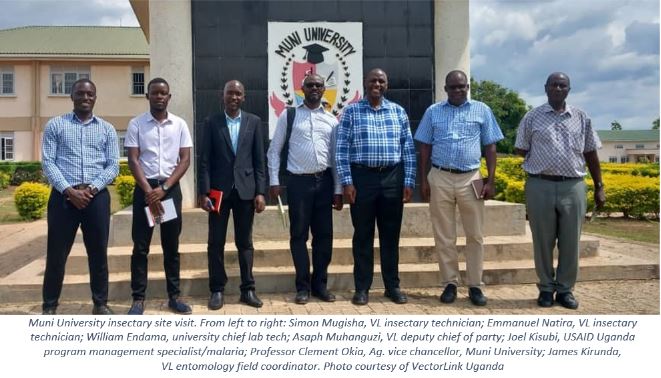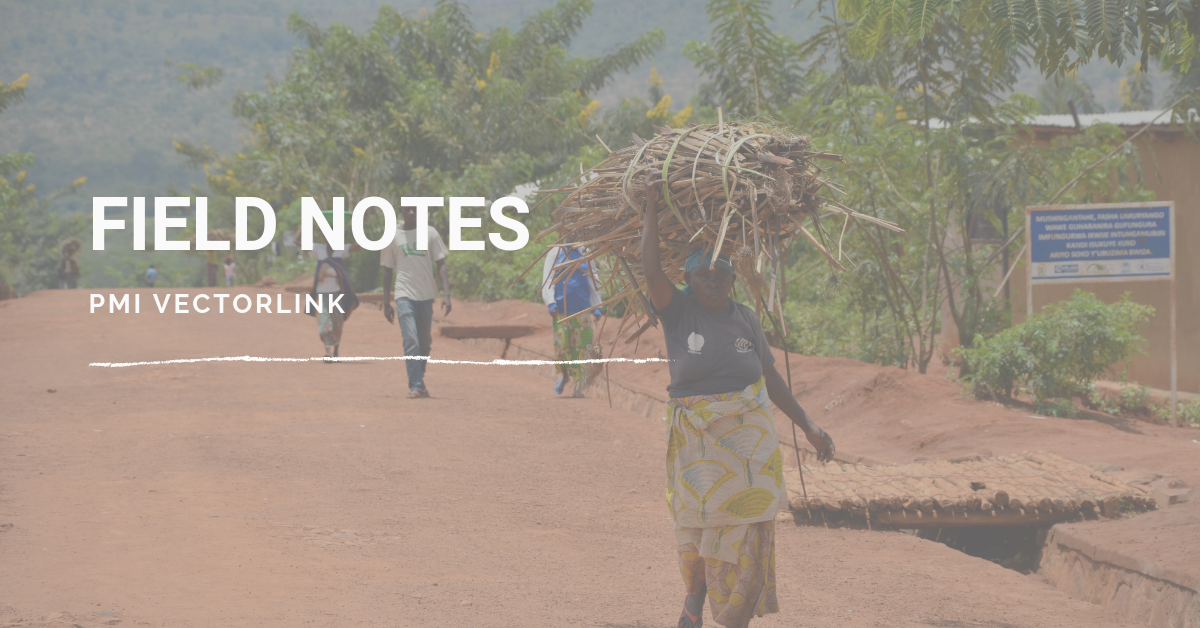 We all know susceptible mosquitoes are necessary to test the effectiveness of malaria control interventions. Entomologists rely on sustained access to susceptible mosquitoes to advance knowledge about vector control. This week’s Monday Motivation goes to the VectorLink Uganda team who is working with the Ministry of Health to support not just one insectary, but four, located across the country at Gulu University, Kampala Vector Control Division (VCD), Muni University, and Tororo Hospital (the insectaries at Gulu University, Kampala VCD and Tororo Hospital have been open since the PMI VectorLink Project began).
We all know susceptible mosquitoes are necessary to test the effectiveness of malaria control interventions. Entomologists rely on sustained access to susceptible mosquitoes to advance knowledge about vector control. This week’s Monday Motivation goes to the VectorLink Uganda team who is working with the Ministry of Health to support not just one insectary, but four, located across the country at Gulu University, Kampala Vector Control Division (VCD), Muni University, and Tororo Hospital (the insectaries at Gulu University, Kampala VCD and Tororo Hospital have been open since the PMI VectorLink Project began).
The most recently opened insectary at Muni University, which became operational last July, provided mosquitoes for quality assurance tests done for the MOH-led IRS campaign that concluded in September. PMI Activity Manager Joel Kisubi recently visited and commented on how the insectary is an investment by the U.S. government to support malaria research and innovation in Uganda.
More recently, the insectaries at Tororo Hospital and Kampala VCD provided mosquitoes for the entomological assessments done during the PMI VectorLink-led IRS campaign that wrapped up at the end of March. Because mosquitoes were brought into the community for these assessments, some community members were resistant to these assessments occurring due to the belief that these mosquitoes would infect people with malaria. To address this hesitancy, the VectorLink Uganda team showed the community members and village leaders how these tests worked. The first few houses were sprayed, and then they got to see how the mosquitoes die when they rest on the sprayed walls.
All four insectaries support research aligned to the national malaria research agenda. The Muni University insectary will support the insecticide chlorfenapyr susceptibility monitoring study in Arua District as well as insecticide-treated net (ITN) studies for the planned national mass ITN distribution campaign later this year. The MOH and Muni University will also explore collaborative research activities with other institutions within and outside Africa to make the insectary self-sustaining. Similar work is ongoing at Gulu University.
Excellent job enabling high-quality research to support vector control, VL Uganda!


